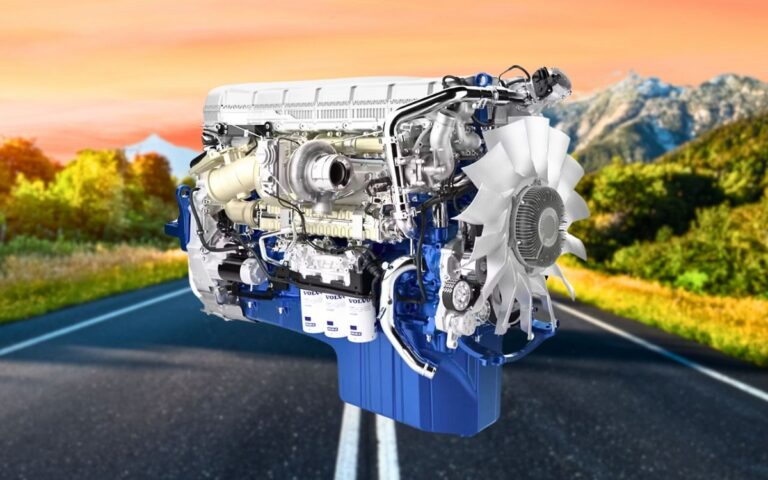Sweden is making headlines with an innovation that could change the future of transportation. While much of the world focuses on hydrogen as an eco-friendly solution for vehicles, Sweden has just unveiled a groundbreaking fuel that may even overshadow oil. Volvo Trucks is at the forefront of this revolution, introducing a fuel-efficient engine that could reshape the transportation sector.
Volvo’s D17 Engine: A Leap Towards Sustainable Transport
Volvo Trucks has made significant strides with its D17 engine, the most powerful engine the company has ever designed, offering versions that reach up to 780 horsepower. This new engine incorporates WAVE combustion technology, which enhances throttle sensitivity and fuel efficiency compared to previous models. With torque ranging from 2,212 to 2,802 lb-ft, the D17 is built to meet modern transportation demands while drastically reducing emissions.
What makes this engine so remarkable isn’t just its power; it’s the fact that it can run on 100% renewable biodiesel, a fuel that could play a central role in reducing the transportation industry’s carbon footprint.
Volvo’s Commitment to Renewable Fuels
The D17 engine stands out because it is compatible with B100 biodiesel, which means it can operate on a fuel derived entirely from renewable sources. This is a critical component of Volvo’s strategy to achieve climate neutrality by 2050. By utilizing biodiesel, CO2 emissions can be cut by as much as 70%, depending on the fuel source. This commitment forms part of Volvo’s broader vision, which also includes developing electric and hydrogen-powered propulsion solutions.
In an industry that is increasingly leaning toward sustainability, Volvo’s proactive stance on renewable fuels—especially biodiesel and hydrotreated vegetable oil (HVO)—sets it apart from many of its competitors. This forward-thinking strategy not only helps Volvo meet current customer demands and regulatory requirements but also prepares the company for a future where conventional fuels may no longer be viable.
New Swedish Legislation for Greener Transport
Recently, Sweden made important legislative changes that aim to make transportation even more energy-efficient and environmentally friendly. The new regulations allow for longer and heavier tractor-trailer combinations, which significantly reduce fuel consumption and emissions. Under these laws, trailers can now extend up to 34.5 meters in length, with a maximum weight of 100 tons. This change helps improve operational efficiency, allowing the transportation industry to achieve sustainability through logistical innovations.
How Volvo’s D17 Fits into the New Transport Landscape
Volvo’s D17 engine is a perfect match for these new, larger transport combinations. The engine provides the power and fuel efficiency required for high-capacity operations, making it an ideal fit for these heavier, longer vehicles. Moreover, the Swedish government’s regulatory changes show how collaboration between the automotive industry and government can lead to transformative solutions in the fight against climate change.
Sweden Shows the Way Forward
While the world continues to debate the viability of hydrogen as a major fuel source, Sweden is taking tangible steps toward a greener future with its green-fuel-powered engines. Volvo’s commitment to biodiesel and renewable fuel technologies proves that significant progress is possible now, without waiting for the emergence of newer technologies.
This breakthrough also underscores an essential point in the fight against climate change: solving the problem requires a multi-faceted approach. By integrating advanced engines with renewable fuels, the transport industry can make a significant shift towards long-term sustainability.
In short, Sweden’s innovations with the D17 engine and green fuel solutions could not only challenge the dominance of traditional fuels but also offer a blueprint for other nations to follow in the global race for greener, more sustainable transport options.






